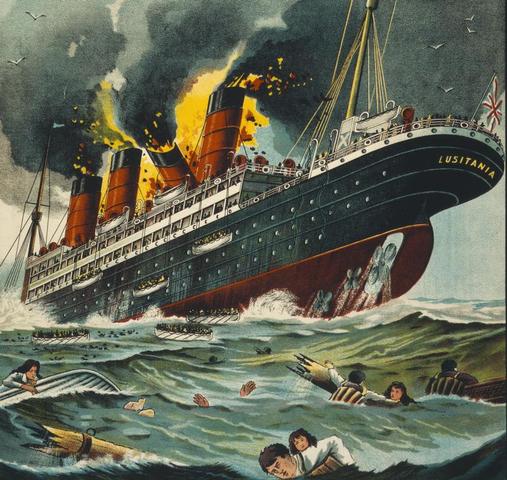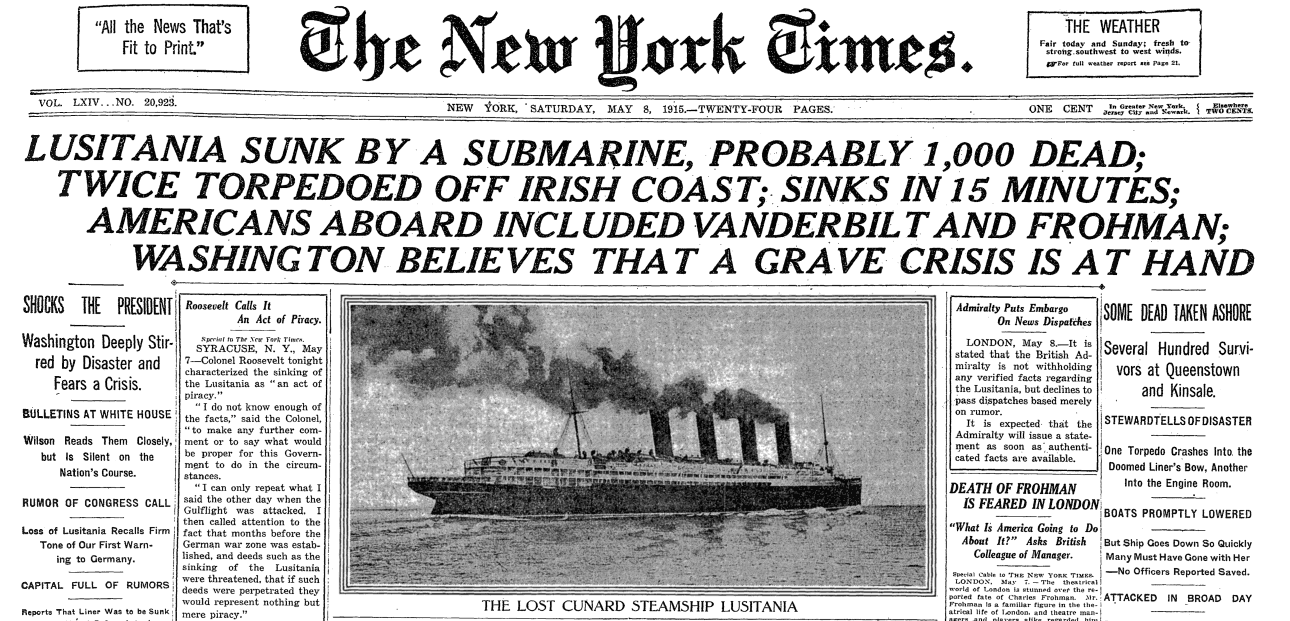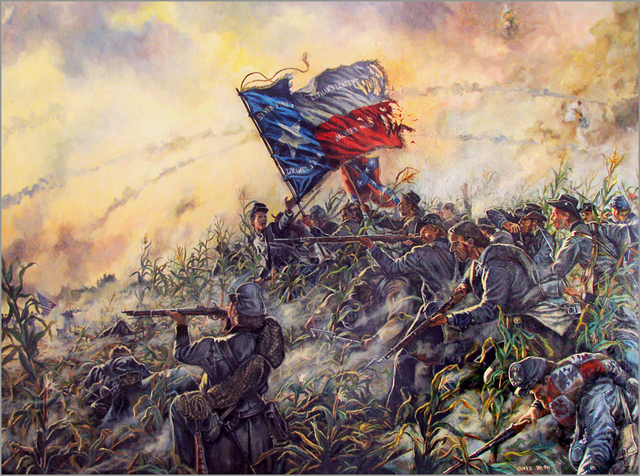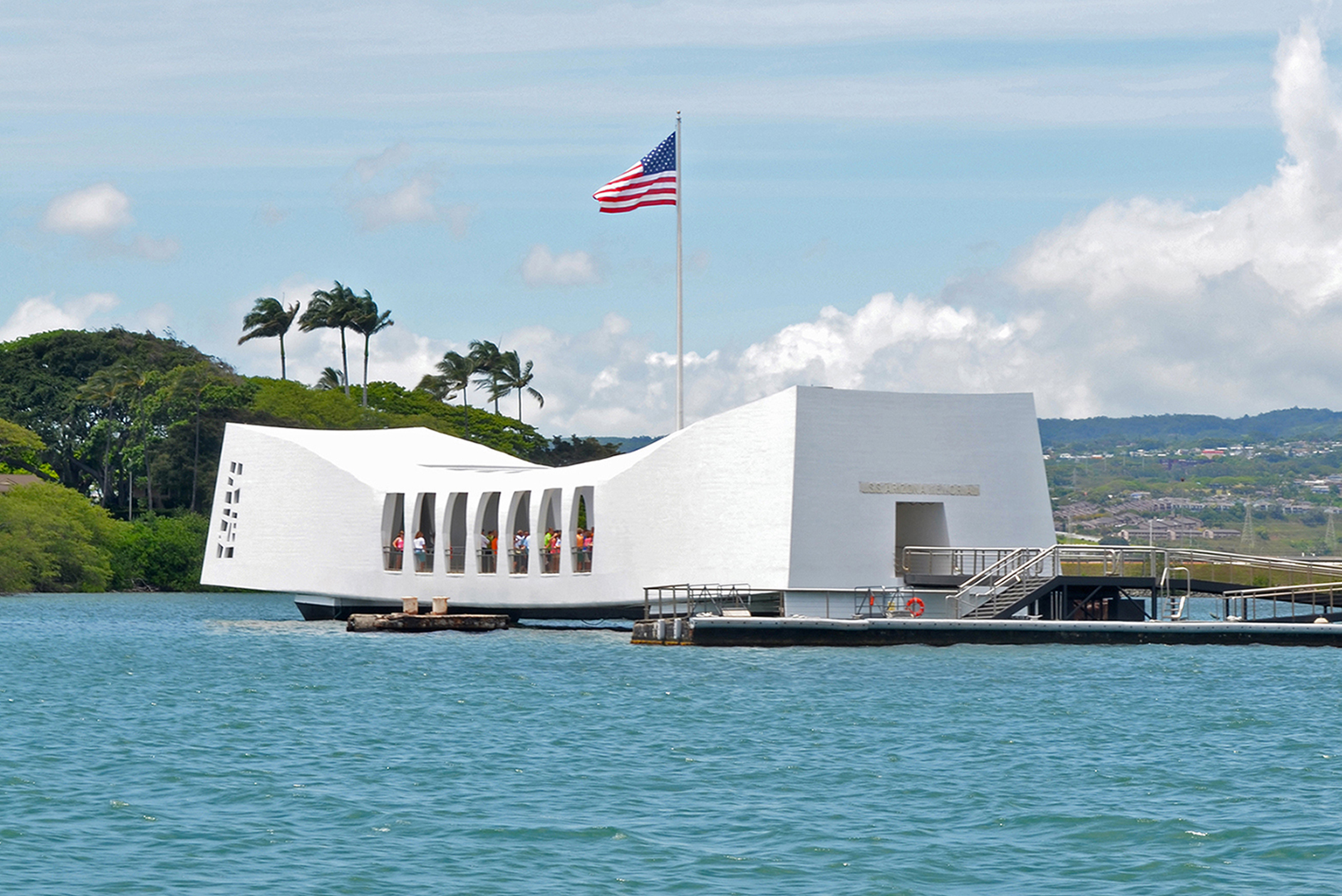





On May 3, 1942, during World War II, the first modern naval
engagement in history, the Battle of the Coral Sea, began. A
Japanese invasion force succeeds in occupying Tulagi of
the Solomon Islands in an expansion of Japan’s defensive
perimeter.
The United States, having broken Japan’s secret war code
and forewarned of an impending invasion of Tulagi and Port
Moresby, attempted to intercept the Japanese armada. Four
days of battles between Japanese and American aircraft
carriers resulted in 70 Japanese and 66 American warplanes
destroyed.

USS Lexington on fire and sinking.


Muhammad Ali, the reigning world heavyweight boxing champion, entered the combative ring of politics and culture by refusing to
serve in the United States military at the height of the Vietnam
War on this day in 1967.
"I ain’t got no quarrel with those Vietcong," Ali famously said the
year before, the exact quote the source of some dispute, in a
battle that made it all the way to the United States Supreme Court.
He later wrote, "I refuse to be inducted into the Armed Forces
of the United States because I claim to be exempt as a minister
of the religion of Islam."



During the Texan War for Independence, the Texas militia under
Sam Houston launched a surprise attack against the forces of
Mexican General Santa Anna along the San Jacinto River.
The Mexicans were thoroughly defeated, and hundreds were
taken prisoner, including General Santa Anna himself.
Battle was reportedly won in 18 minutes by a Texas militia
numbering 910.


Gen. Santa Anna
(21 February 1794 – 21 June 1876)



WASHINGTON (TND) — A World War II hero — who survived the
attack on Pearl Harbor in 1941 — is ready to celebrate a big
birthday.
Ken Potts will be turning 102 on Saturday, according to the
USS Arizona Legacy Foundation, a nonprofit organization.
Potts was aboard the USS Arizona when the battleship was
attacked by the Japanese military on the naval base at in
Hawaii on December 7, 1941. More than 1,170 crewmen were
killed. But Potts, along with at least 330 others, survived.

The USS Arizona near Pearl Harbor in a photo taken by a
Japanese spy sometime before the December 7 attack.


USS Arizona Memorial at Pearl Harbor on the island of Oahu, Hawaii.